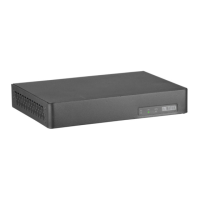1020 Matrix PRASAR UCS System Manual
RCOC (Return Call to Original Caller)
What is this?
Generally, extensions users of the System are given a trunk access to make outgoing calls from their phones. It is
also common for a group of extensions to share the same trunks to make outgoing calls.
When an extension user of the System makes an outgoing call and the called party does not answer the call or is
busy on another line, it is possible for the called party to return the call (made by the extension user) on the basis of
the CLI number received.
However, when the called party returns the call, this incoming call is most likely to land on the Operator extension,
as incoming calls are usually routed to the Operator.
Now, the Operator has no way of knowing which extension made the call so as to transfer the call to that extension.
Instead, the Operator must either ask the called party whom they wish to speak to and transfer the call or put the
called party on hold and find out the extension that made the call. This is an unwieldy process for all concerned -
the Operator, the called party and the extension user who originally made the call.
This can be overcome if the System is able to route the returned call to the original caller's extension.
PRASAR UCS makes this possible with the Return Call to Original Caller feature.
How it works
The Prerequisites
• RCOC is enabled on the desired Trunk/s
• RCOC is enabled in the Class of Service group assigned to the extension.
RCOC Table
RCOC table is maintained internally by the PRASAR UCS and it is non-programmable.
• PRASAR UCS can keep a record of 512 entries in the RCOC Table.
• Each entry is kept for the duration of the RCOC Record Delete Timer (programmable; default: 999
minutes). Whenever a record is stored in the RCOC database, the Record Delete Timer for that entry is
activated. On the expiry of the Timer, the entry is deleted by the system.
• If a same external number is dialed using 3 different SIP Trunks with RCOC enabled on all the Trunks and
Extensions, then if the called party calls back, the call will land on the original callers using FIFO logic.
• Each record is deleted from the database either after the call is returned or on expiry of the Record Delete
Timer.
• The RCOC database remains unaffected during power outages.

